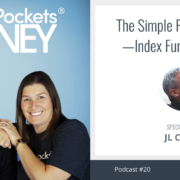
New home sales fell by 1.5% in April, but industry professionals seem unconcerned and predict a continued upward trend in new home sales going forward.
Source link
![]()

Tech startup First.io announced Tuesday it raised $5 million in its Series A funding round. Chicago-based startup investors MATH Venture Partners, Nine Four Ventures, and @properties’ co-founders Thad Wong and Mike Golden, leading the investment round.
Source link
I’m going to start this article by saying there is nothing wrong with any piece of real estate as long as the price is right. Now, you’ve probably heard me say this many times, but I’m going to reiterate it for you guys because I want to reinforce the message: Real estate is a long-term play. It’s going to take 5, 10, or 15 years to get you to where you really need to be. You also need to find the right people. So forget about the stats, forget about the demographics, and start with the people first. Build trust and relationships with the right people who are truly going to have your best interest at heart. I believe that success in business is about delayed gratification. It’s about planting the seed now and reaping the harvest later.
Now that we’ve got the people factor out of the way, I have something else that I need you to do before I get into the nitty-gritty of this article. I need you to pick a few zip codes and truly become a local expert on whatever is happening in that area. I need you to understand what distressed properties are selling for, what renovated properties are selling for, who the top performing agents in those areas are (and network with them), who are all of the real estate investors buying, selling, and flipping are, and who the buy and hold landlords are. You also need to know the numbers in those particular demographics. Live it, breathe it, love it, eat it, make your whole life revolve around it. So we spoke about the people, we spoke about becoming a local expert and understanding the numbers in that particular area.
So, Should You Buy a Property That Has Back Taxes?
I don’t see why not. Let’s reference what we just spoke about. We spoke about knowing the numbers in that particular area so if an opportunity presents itself where the property has $5,000, $10,000, or $15,000 in back taxes and you know what distressed properties go for in that area that do not have any back taxes, the calculations are quite simple. All you have to do is discount the amount of back taxes against the purchase price of that potential property. Yes, it will probably come down to zero, but that’s what you can pay, right? You’re not going to overpay for the property because if you overpay for the property, you’re going to lose money. I want you to remember this rule: You make money when you buy not when you sell. Never forget that. You have to make sure that you negotiate well and you buy cheap.
As you’re doing your due diligence on these deals or underwriting them through your pro formas or whatever you use, if it equals out to zero, then zero it is. You would not believe how many times I’ve gone to a landlord or someone looking at selling a distressed asset and said, “I cannot pay anything for your house.” Actually, a few times I’ve told them that if they want to get the property off their hands, they need to give me money to take it. You’re probably thinking, is that even possible?
Related: Property Lien Search: How to Find Out About a Lien on a House
I’ll tell you now: Yes, it is. Over my career as a real estate investor, I’ve had a few landlords who did not want to deal with their issues anymore and did not have the experience, knowledge, or right team to fix that property or the capital. They wanted out. I have gotten paid to take properties off people’s hands because they were a complete nightmare. If I could do the deal again, I wouldn’t even accept them because those deals did not end up going in my favor.
So even if a property has liens, have a relationship with a trusted title company. The relationships are coming in to play here. Give them the address, give them a couple hundred bucks, and ask if they can pull the records on this property so you can see how much the liens are. If you can discount the amount owed on those liens or on the back taxes against the purchase price and you can come to an agreement with that seller, you do the deal. Now, you can also get creative such that you inherit that lien and negotiate with the lender, but personally, I don’t like doing that. You can also ask the city to go on a payment plan with the taxes, but I’m not a fan of that either. I would rather you try to get that discount from the purchase price so either you or the seller can pay off those back taxes or lien once the property closes.
So yes, you should buy properties that have back taxes and you should buy properties that have liens as long as the numbers make sense and you’re going to make money.
Alright, that’s about it.
Comment below! I’d love to hear from you.
Are you ready to jump into real estate investing, but don’t believe you can find deals in today’s hot market? In this episode, we sit down with multifamily expert Andrew Cushman, who’s actively doing deals in today’s market — and turning big profits. In this show, Andrew explains how he’s finding deals, what metrics he uses to qualify them, where he’s buying today, and what his secret tricks are for finding the “overlooked opportunities” most investors miss — including how he found an amazing deal in the “trash can” for bad deals!
You’ll love hearing how Andrew creates millions of dollars in equity and builds relationships with deal-finders so that they bring him the best deals first. Be sure to download this episode and share it with your friends, so you, too, can master the secrets that the pros are using to snag killer deals!
Click here to listen on iTunes.
Listen to the Podcast Here
Podcast: Play in new window | Download
Subscribe: Apple Podcasts | Android |
Watch the Podcast Here
Help Us Out!
Help us reach new listeners on iTunes by leaving us a rating and review! It takes just 30 seconds and instructions can be found here. Thanks! We really appreciate it!
Fire Round Sponsor
We just wa nted to give a shout out to our podcast sponsor on today’s show: RealtyShares. RealtyShares is a crowdfunding platform that allows you to invest in professionally managed properties without leaving your living room!
nted to give a shout out to our podcast sponsor on today’s show: RealtyShares. RealtyShares is a crowdfunding platform that allows you to invest in professionally managed properties without leaving your living room!
Learn more by visiting RealtyShares.com/biggerpockets!
In This Episode We Cover:
- Andrew’s backstory
- How to make deals rather than find them
- The ABCD neighborhoods — what are they?
- What specific properties Andrew is looking for
- His effective screening criteria for finding properties
- An in-depth story on one deal
- Net operating income (NOI)
- Understanding how properties are valued
- Challenges Andrew faced over the years
- Finding great contractors
- Andrew’s many rental property units
- And SO much more!
Links from the Show
Books Mentioned in this Show
Fire Round Questions
Tweetable Topics:
- “The person who wants it the most, loses.” (Tweet This!)
- “You can completely destroy an investment with the wrong people managing it.” (Tweet This!)
- “Don’t wait to buy Real estate. Instead, buy real estate and wait.” (Tweet This!)
- “The best way to spot a great deal is to look at 99 bad ones.” (Tweet This!)
Connect with Andrew

Arbor Realty Trust, a real estate company specializing in investment for multifamily, seniors housing, and healthcare real estate, announced plans to make a public offering of 5.5 million shares. At its current stock price, that translates to roughly $51.3 million that the company could raise through this offering.
Source link
Jim Collins has literally done it all. From busboy, produce, clerk, and gas station attendant, to ad agency founder, sales trainer, radio co-host, and publisher. He is a prolific world traveler, having visited more than 30 countries on five continents via motorcycle, car, train, plane, boat—and even elephant.
Jim has lived a very good life. And along the way, Jim has learned that money is a tool that can offer the freedom to live the life you want to live.
He’s also figured out that there is a very simple path to wealth. While you can make money picking individual stocks, the index fund is a very easy way to grow your wealth in the stock market without spending time researching companies.
This episode truly is the show for anyone who has money or wants to have more.
Click here to listen on iTunes.
Listen to the Podcast Here
Podcast: Play in new window | Download
Subscribe: Apple Podcasts | Android |
Watch the Podcast Here
Help Us Out!
Help us reach new listeners on iTunes by leaving us a rating and review! It takes just 30 seconds. Thanks! We really appreciate it!
In This Episode We Cover:
- Jim’s background
- How he discovered the FI concept
- The position of power in his life, and how he made bolder choices
- How he transitioned into financial business
- How he was able to achieve high savings rate
- Achieving FI, picking individual stocks, and actively managing funds
- Separating your emotions from your investments
- Four things you need to move toward FI
- The key things to remember when investing in an index fund
- What self-cleansing means
- His timeline for investing in index funds
- Buying bond market index funds
- His take on the “Bloodbath on the Wall Street” headline
- Strategy for getting into the market
- Ways to invest in the stock market
- And SO much more!
Links from the Show
Books Mentioned in this Show
Tweetable Topics:
- “It’s not a matter of choosing between something that is terrible and something that is great. It is choosing between something that does work and can work depending on how skilled you are at it.” (Tweet This!)
- “Stocks are never gonna love you back.” (Tweet This!)
- “The longer the time period you hold, the more statically certain you can get.” (Tweet This!)
Connect with the Jim
In my research through the Forums of BiggerPockets attempting to understand the needs of potential future clients as a new real estate agent, I have come across countless threads looking for “investor-friendly” real estate agents. Are they really the unicorns of real estate? I don’t think so. Let me share my perspective with you.
Let’s start with the term “investor-friendly.” This implies there are agents out there who are investor-unfriendly, and if the posts on BP are any indication, they seem to be out in great numbers since every newer investor seems to be searching for the friendly ones with no luck.
In life, if we wander around every day not being able to find a friendly person, at what point do we start looking in the mirror?
Are You Looking for a Friend or a Professional?
It may sound harsh, but agents are not friendly or unfriendly towards you because they need a new pal. By statute, agents owe every client the same fiduciary responsibilities. These responsibilities are confidentiality, loyalty, obedience, disclosure, care, and accounting. These may vary state to state.
That being said, even though all agents are required to perform these duties for all clients, a true professional will exceed in every category. When they are exceeding in every category, they tend to make a good living, and their time becomes scarce.

Related: The Epic Guide to Finding an Investor-Friendly Real Estate Agent
In combing through these threads, the following are actual statements from investors that give me some insight into what they consider “friendly.”
- “I need someone who answers the phone.”
- “I’m a first time buyer, and I need reliable information on my market.”
- “I want an agent who will be patient and educate me on what to look for so that I will not get ripped off.”
- “I really want an agent who will help me negotiate the best price.”
I could list go on and on, but what I have learned from these comments is investors are not looking for someone who is “friendly”—they are looking for an agent who is a “professional.”
Do you agree?
Why is it Difficult to Find a Professional Who Will Work With Investors Consistently?
Now that we know a professional is what we are looking for, let me share some of the reasons straight from the BP Forums as to why agents shy away from working with some investors.
- “He wanted me to write 15 offers on pristine houses, all at 40% below retail market price.”
- “He constantly called me for weeks asking for information off the MLS, and then purchased with a different agent.”
- “They continually talked about the ‘investor boot camp’ and ignored my professional advice.”
- “I worked with an investor once, and they would call at all hours expecting me to drop all my other clients to work on what they wanted.”
Again, I could make a lengthy list, but a majority of the complaints from the agent side have a common thread. The investors are wasting their precious time and/or not respecting the advice from the agent.
In addition to the above, there were countless investors looking to enlist agents for duties suited to an assistant or receptionist. There may be agents out there who will write endless offers, drop everything to get information off the MLS, and be willing to perform whatever duties are required by an investor with the hope of closing a single transaction, but in my opinion, these will not be the most professional agents or have extensive knowledge of the market. They are individuals trying to stay afloat in their business. Is this the type of person you want working for you?

Related: Are Your Rentals in a Landlord-Friendly State? Here’s Why That Makes a BIG Difference.
Become What You Are Looking to Attract
We want to find an investor-friendly agent, but are we agent-friendly investors? Sometimes it’s hard to acknowledge our own flaws. Devote some extra time to dig in deep, and really get to know what an agent does during their daily activities. The juggling act that is discovered will most likely be a surprise and will help anyone have a deeper appreciation of the amount of time and effort that is involved to produce great results for clients consistently.
Investor-Friendly Real Estate Agents Do Not Exist
There are only professionals and non-professionals. When two professionals work together, it will naturally be a mutually beneficial relationship, and both parties will work to keep the relationship intact. The time and knowledge of both sides will be respected by the other. If either an agent or an investor finds it difficult to work with the other, there may be a need for one or both to step up the game to a professional level.
We’re republishing this article to help out our newer readers.
If you are an agent or an investor, let me know how you feel, and share your experiences in the comments!
Leave your opinions below!
I was talking to my buddy and co-worker Craig Curelop the other night. It was about 7:00 p.m., and we were having one of our not-infrequent discussions about financial freedom late after work. As usual, Craig was cooking dinner at the office after his workout. I suspect that he was cooking here in an effort to save money on electricity that he’d otherwise have to use to cook at home (I can’t even tell if I’m joking about that or not). I was just here late, trying to catch up on emails.
For some time, we’d been having a debate about his approach to attaining early financial freedom. I was claiming that Craig goes too far in his pursuit of financial freedom. Craig was politely dismissing my claim and insisting that he was perfectly happy with his situation.
Craig’s Obsession with Financial Freedom
Now, I think I have some good reasons to think that Craig is going pretty hardcore in pursuit of early financial freedom. He does a LOT.
Craig house hacks in a house that is eerily similar to the property I first bought back in 2014—my first house hack. His home is just a few blocks away from my property, but a bit newer and nicer. Craig, however, gets a far better financial return from his investment than I did and will likely do better with his investment than me over time, even though I bought an investment that has better numbers as a traditional rental property. How does he do this? Simple—he rents out his bedroom on Airbnb and sleeps on the futon in the living room!
Craig bikes to work every day. Thirty degrees and snowing like it is on the day I write this? Craig is still on his bike. Craig rents out his car on Turo, netting positive every month on vehicle expenses.
Craig does not eat sugar. Craig does not consume alcohol. Craig is involved in extra-curriculars like Toastmasters in an effort to constantly improve himself. Craig reads incessantly. Craig hang-dries his clothes to save money on electricity. Craig gets up at 5:30 a.m. each morning to pursue his goals. Craig meets investors and potential contacts multiple times per week.
Craig has literally optimized almost every part of his life in pursuit of early financial freedom.
Is this too much? I certainly thought so at first—and I told him so. I thought so until our conversation the other night, when I suddenly remembered what I did to jumpstart my journey to financial freedom.

Related: 7 Daily Habits of Real Estate Investors Who Seek Financial Freedom
My Obsession with Financial Freedom
See, when I got started on this journey, the term “house hacking” (but certainly not the concept, which has been around forever) had just been invented by Brandon Turner in this article. The concept of biking to work was completely foreign to me. In fact, every single person I had ever even heard of (excluding the 40-year-old virgin) drove to work or took public transit. Riding a bike had just had not presented itself as an option until I began reading a blog called Mr. Money Mustache (one of my favorite blogs of all time).
In spite of friends and family who thought I was crazy, I bought a house hack. I took this “Mr. Money Mustache” guy’s advice and biked to work. I read over 100 personal finance, business, psychology, and career-related books. I quit a stable, hard-earned job with middling corporate opportunity to pursue a highly risky job at a startup. I networked with investors all over the city. I tried to get up early to pursue a version of the Miracle Morning even though I hated it and am a night owl. I cooked all of my own meals and almost never consumed anything that even approached unhealthy. I kept a “daily log.” I even hung dry my laundry instead of installing a dryer. I did this for years. I still do much of this.
I don’t regret it one bit. In fact, looking back, I wish I’d been more like Craig—more obsessed, more (not less) productive.
You Don’t Have to Be Perfect Forever!
The reason I initially thought that Craig was doing too much was that I am currently growing soft. Nowadays, I still house hack. I bike to work, but much less frequently, and often on a custom built e-bike that I put together over the summer that is pretty awesome. This is partly due to a nasty foot injury—I suspect I will resume with biking more regularly on the road bike as the foot continues to improve and the weather gets nicer in the spring of 2018. I cook less and eat out a few times per month. I love Chinese food and am willing to splurge on it now a bit. I enjoy dates at casual restaurants with my girlfriend. I have a dryer.
I still spend very little compared with your average American, but it’s creeping up a bit.
I sometimes forget that I needed to do the hardcore things that Craig is currently doing to get where I am. Are they things that I want to do for the next 50 years? Are they things that I’m even still doing today?
No, not all of them.
Am I proud that I did them and happy that they contributed to my current position?
Absolutely.
But the point of all of this is that I can afford to bring some luxuries back into my life now. I have enough passive income to purchase some of these things and still get ahead. And while my passive income more than pays for my lifestyle as things stand, it is not yet enough to comfortably fund the life I could see myself wanting in the future—a life that will involve fewer still of these optimizations.
As my portfolio continues to grow over the next few years, I see a more permanent house in my future. I see potential pets. I see a very nice, large kitchen and a significantly improved bathroom in a future residence compared to my present situation. I see some luxuries that I’d truly enjoy, like maybe a backyard or garage filled with home gym equipment (purchased second-hand via Craigslist, of course). I see myself gradually approaching a lifestyle that anyone would call middle or upper-middle class.
But I’ll be able to live that lifestyle at extremely low cost, with minimal waste, and fund it entirely with a surplus from real estate cash flow. This result will unfold gradually, as I consistently increase my passive income in the coming years. And this is possible solely because of the optimization that I implemented in the past and am continuing to ride in the present.
I’m starting to get soft, and I may well continue to soften in the future. To plan on living an entire life of perfect optimization would defeat the purpose of pursuing financial freedom. I seek bit by bit to build the exact life I want—and to only increase my standard of living in proportion to my passive income—and never in excess to the point where I will grow fat and lazy.
I’m willing to go without some of the things I eventually aspire to in order to make that dream a reality.
Craig has a similar vision. Craig will not be living on a futon forever. As his wealth grows, as he eliminates his student loans, and as these choices become less and less meaningful to his financial position, I am certain that Craig will cool it a bit.
Related: The Surprisingly Simple “Secret” to Financial Freedom Most 9 to 5-ers Overlook
Once you are at a point where you feel that you can ease off the gas pedal, do it. Do it in certain areas that are most meaningful to you. As your passive income increases and covers your living expenses you can stop making the “sacrifices” that everyone thinks Craig and I are making!
But What About Living in the Present?
Notice, however, that neither Craig nor I give up or gave up certain things that are universally accepted as important to a well-lived life. Like travel. Like nights out with friends. Like attending sporting events. Like visiting family. Like attending life events of those we are close with. Like volunteering in the community. Those are the things we associate with living.
Craig does not go too far in his pursuit of early financial freedom. Craig is one of the healthiest, most well-adjusted folks I know. In spite of his unforgivable love of Boston sports teams, including the New England Patriots, he is a genuinely funny guy, a hard worker, and has friends who come to visit him from all over the country. Craig is doing this whole thing exactly right and will enjoy experiences comparable to every other 20-something in Denver over the next few years, based on his interests. The only real differences between him and the rest of the pack are that he will arrive where he is going on his bicycle, and he will rest his head at night on a futon instead of in a bedroom. He says these things do not affect his happiness. And I believe him. How could they?
I believe that Craig has some of the highest odds of anyone I know of achieving a $1,000,000 net worth by the age of 30. You might look at Craig and think, “That’s crazy – I could never do what he does and sleep on the couch while renting out my bed!” But I challenge you to see things from the other perspective—from Craig’s perspective and mine.
Is it crazy to build that much wealth that early in life? Is it crazy to enjoy the same recreational activities as your peers, yet come out way ahead financially? Is it crazy to create a life that is healthier, more fun, costs less, and sets you up for greater career success or income generation? Is Craig crazy? Am I crazy?
Or is everyone else crazy?

You Need to Get Obsessed with Optimizing Your Life, Too!
Almost every day since I started optimizing my life, my life has gotten better. I’ve become healthier, wealthier, stronger, happier, a better skier, a better rugby player, and more in tune with my family. I’ve experienced career accomplishments. I’ve since met a wonderful girl who I’ve dated for a year and half and love very much, and I have what I consider to be a pretty good, fun-filled life.
I believe that this progression of events is not unique to Craig and me. Almost everyone I know who has gone on to achieve financial freedom at an extremely early age, who has accumulated a large amount of wealth in a short period of time, or who has started a successful business has done some version of aggressive, all-out optimization in pursuit of their goals.
Maybe successful folks didn’t sleep on a futon or even house hack. But you can be sure that they devote outsized time, in the beginning, to getting some kind of venture off the ground. You can be sure that they earn more than they spend—by a lot. You can be sure that they become obsessed with the success of the venture they’re involved in. Every blogger on this site is obsessed with their craft. They study it relentlessly for years. You need to develop the same healthy obsession with your goals as well.
No one has come to me and said they regret these types of choices. No one regrets giving a worthy goal their best efforts. And even if they do, in most cases, choices like these are easily reversible. You can always stop reading, stop networking, stop biking, and stop house hacking if you decide it’s not for you. Craig can simply stop listing his room on Airbnb tomorrow if he wants and live at a lower cost than almost every American, in the heart of an expensive city at that!
Yes, folks can build a million-dollar net worth as middle-class wage earners over a period of decades. That’s not hard and can be achieved automatically, with merely sane spending habits, buying a reasonable home, and contributing to a 401(k). I’m not talking about achieving this result. I don’t write for folks looking to achieve this result. I seek to help people trying to achieve early financial freedom in a fraction of that time.
And to do that, you need to become obsessed. And if you truly want to give yourself the best chance at achieving this goal rapidly, you need to optimize with a passion and zeal.
The part of the journey that Craig is currently in is the part that so many more of you readers need to undergo to truly jumpstart your journey to financial freedom. This should be the fun part. It’s where you really make the changes necessary to become successful. I’ve met dozens of people who are undertaking this journey and house hacking (yes, with kids) in the bottom units of up/down duplexes. I’ve met people who have begun biking to work. I’ve met people who read relentlessly or who take action day after day in pursuit of success with their career or side hustle. For the first time in years, many of them are excited to take on life. They identify the correct opportunity, the opportunity that offers them a real shot at achieving their goals, and they pursue it 100 percent, with their best efforts, for years.
Don’t mistake these folks for the outliers. The folks who achieve financial freedom rapidly without making optimized choices in almost every area of life—choices that increase their wealth, productivity, and happiness—are the exception, not the rule.
Conclusion
Look, I totally understand that Craig’s approach—or even my approach—may not be something that you want for your entire life. Frankly, I DO NOT plan to house hack in perpetuity, and I am reasonably sure that at some point Craig will move on from his futon to a bed, then a house that he eventually wants to reside in semi-permanently.
The whole point of this is not to live like this forever. It is to do it as long as necessary to achieve your goals. The point is to create and execute a plan to create the life you want and then live that life exactly as you want, as the person in nearly complete control, forever after. And along the way, you’ll probably find that many of these “sacrifices” are actually all-around improvements in your day and lifestyle!
I’m not trying to convince you to live on a futon. I’m trying to tell you that doing so will not impact your happiness if you go in with the right mindset. And that it is not and should not be a permanent state of affairs. I’m trying to tell you that choices like that are the ones that increase your odds of accumulating money and freeing up time with which to pursue big income and investment opportunities unavailable to folks with tiny savings rates and no free time.
You may think that I’m strange for biking to work, making my own meals, and living in a house hack. You may think Craig is strange for renting out his bed and car, sleeping on a futon, and biking to work. But to us, this life is better than an alternative that involves long commutes, being handcuffed to a mortgage, and engaging in unhealthy or unproductive behaviors that don’t produce results or fond memories! And in five, 10, or 20 years, the folks who make choices like this are more likely than not to be multimillionaires with multiple properties and multiple sources of income.
Dave Ramsey famously says, “Live like no else now so later you can live like no one else.” The implication of this is that you have to give up happiness and sacrifice now to live the life of your dreams later. This is not how I have experienced things. Life was better immediately after making the choice to optimize my lifestyle around my goals, AND it continually improves as I reap the financial, career, health, and relationship results of those choices. I feel good about where I’ve been, where I am, and where I’m going. You can live better than everyone else now, in an extraordinarily low-cost, productive, and impactful manner, AND live like no one else later.
I made the mistake of thinking that Craig was going too far in pursuit of financial freedom. But he can and should go farther and faster if he can and will continue to love his life. Let me state it all again: He enjoys it. And he should enjoy it. He is becoming healthier, wealthier, happier, and more self-confident with each passing day, week, month, and year. I too have enjoyed it and will continue to enjoy it. You should enjoy it, too.
I honestly believe that those of us who pursue early financial freedom and make the optimizations necessary to make that a reality experience a better life in the interim while pursuing it, a better life approaching Financial Freedom, and a better life after achieving financial freedom. There is no “sacrifice” in this way of life. The “improvements” you make to your life may have positive effects immediately and will likely only continue to grow.
I give you permission to choose the healthy, wealthy, happy path that you know will leave you better off when its all said and done. And once you decide to go for it, optimize for happiness, health, and wealth without apology.
We’re republishing this article to help out our newer readers.
What lengths do you go to in your pursuit of financial freedom? Have you ever encountered criticism for living the way you do?
Share below!

In a move that demonstrates its steady move toward real estate investment, asset management giant Blackstone Group announced on Monday it purchased Gramercy Property Trust in a $7.6 billion cash deal.
Source link
The quickest way to wealth in real estate is to purchase a property in an emerging market during one of the early phases of the market cycle. In this article, it is my objective to describe the four phases of the real estate market and how you can make money while purchasing in these four phases. I will also dive into our criteria for buying a multifamily property and how you can limit your downside risk.
Let’s jump into the four phases.
Phase 1: Recovery
The characteristics in this market phase include declining vacancy and no new construction. In my opinion, this is where the savvy investor looks to buy. Unfortunately, securing financing during this phase can be difficult, and overall sentiment is still weak. This marks the contrarian phase in my estimation, where value investors jump in by buying at low prices.
Most investors have been snake bitten from the recession and are unwilling or unable to buy in this phase. The majority of the real estate markets have emerged from this phase and find themselves in the expansion phase.
Phase 2: Expansion
Many markets find themselves entrenched in the expansion phase, a time of declining vacancy and new construction. It takes a few years for new inventory to come online, and during this period, rents and occupancy both expand. In 2015, rent growth was a robust 5.6%, and occupancy stood at 96.1% — both highs. You may be thinking, “Here we go again!”
Let me tell you why you should still consider investing in multifamily assets if they can be purchased at reasonable values. We have been transitioning to a renter nation, with the aid of a shift in demographics and the Great Recession. Homebuyers are still feeling the ill effects of purchasing a home and getting hammered. There is no guarantee that buying a home and holding on for the long-term will produce any gains. The economy plays a huge role in the expansion phase, and the economy is currently adding jobs to the markets we are invested in.
Two demographics that tend to rent are Millennials and Baby Boomers. Every seven seconds, a person turns sixty in the United States, which creates more demand for our apartments. Millennials are entering the labor force saddled with student debt and are forced to rent, which creates another pool of prospective tenants. This demand has been fueling rent growth and is one of the main reasons why property values will continue to increase.

Related: The Real Estate Market: How to Analyze and Predict Cycles
Phase 3: Hyper-Supply
Trouble is brewing on the horizon in this phase. Vacancy begins to increase, and new construction is still ramping up. This is a period when builders need to recognize what is occurring and should put the brakes on new construction. The party is starting to come to an end, but I would still buy in this cycle if I find a deal that fits my parameters: 10% cash on cash return, 8 cap, and a 1.3 debt coverage ratio.
Deals are harder to come by in this phase, but we are still actively pursuing them. It’s all about the numbers, and we buy on ACTUAL numbers, analyzing the last twelve months of a property’s profit and loss statement.
Phase 4: Recession
Anyone remember 2008? The vacancy rate was increasing, and new completions were being delivered to the market. The new construction came to a halt, but it was too late. There was a double whammy — less renters with the addition of new inventory. Rental rates, as well as occupancy, continued to plummet, and this accelerated the downturn in real estate values.
Let’s turn our attention to underwriting these deals and how you can “buy right.” The first step to buying right is to analyze a deal based on actual numbers. Ask the broker for the last 12 months of trailing profit and loss figures. If the broker can’t provide you with a profit and loss, either move onto the next deal OR try to obtain the last three months of gross income.
Next, I will create an estimate of what the expenses should be and perform a rudimentary analysis based on these estimates. I know in my market, it costs me around $3,600 per unit to run a property, and investors need to learn how much it costs to run a property in their market. I have also used the rule of thumb for operating expenses as 50% of gross income to perform a quick calculation. For example, if a property is grossing $10,000 per month, I will estimate expenses to be around $5,000.
Once I have calculated income and expenses, I arrive at the net operating income (NOI) by subtracting income by expenses. Visit our previous article on BiggerPockets that discussed how to calculate value using the net operating income.
I focus on three criteria when investing in multifamily assets.
Cash on Cash Return
I expect to earn at least a 10% cash on cash (COC) return from day one. As we progress further into the expansion phase, it has become increasingly difficult to find deals that produce this return, but I maintain my discipline and will not purchase an asset that is not producing an actual 10% COC. Be prepared to analyze a lot more deals.
My biggest mistakes in real estate were all centered on the buying phase. I either overestimated the appreciation of the property or I fell in love with the property. I quickly learned that all savvy investors make their money on the purchase of the asset. Buying with an actual 10% COC limits my downside risk, and any forced appreciation that occurs on the property will become my profit.
Debt Coverage Ratio
I aim for a 1.3 Debt Coverage Ratio (DCR). To calculate DCR, take the NOI and divide it by the annual debt. Banks typically require at least a 1.2 DCR to lend on a property. A property that achieves a 1.2 DCR is simply generating 20% more income than the payment of the debt.

Related: 3 Simple Steps to Increase the Value of Your Multifamily Property
Cap Rates
As the market continues to appreciate throughout the United States, we have been witnessing a compression of cap rates. Simply put, values increase, and cap rates drop. In our market, we aim to purchase a C-asset with an 8 cap. I know most readers will find it incredulous that there are still properties out there trading at an 8 cap. If I can’t buy at an 8 cap, then I will pass on the deal unless there are incredible value adds with the property that will allow me to explode the NOI of the asset.
Consistency in the buying process will allow you to analyze deals quicker and become more accurate in your underwriting. Emotion will be removed from the buying process, and the numbers become the focal point. Don’t commit my mistake of falling in love with a deal. Fall in love with the numbers first.
Your Task
Decide what market to invest in, and begin to research the market. Focus on job growth, which should average at least 2% growth for two consecutive years. To access data for jobs in a market, Google the name of the city and “job growth” or utilize the website www.bls.gov to gather employment data for a specific city. Look for companies announcing a move to a market, and become familiar with employers in your market.
Target markets that are experiencing household and population growth. Household growth is a more powerful barometer because households are the ones that become our clients.
Study the demographics of the market and look for a higher percentage of Millennials and Baby Boomers. The middle aged demographic tends to have families and are more apt to become homeowners.
Finally, take action and educate yourself on the power of multifamily investing. A wise man once told me, “It’s not what you buy, but what you pay.”
We’re republishing this article to help out our newer readers.
I want to know what’s going on in your market. Please leave me a comment and tell me where cap rates are in your market and where you are finding deals! I know they’re out there, it’s just much harder to find them.
Be sure to leave a comment!
Latest Projects
Address
12325 Academy Rd Suite 48, Philadelphia, PA 19154
 :215-447-7209
:215-447-7209
 : deals(at)frankbuysphilly.com
: deals(at)frankbuysphilly.com
Office Hours
Mo-Fr: 9AM-8PM
Sa: Closed
Su: Closed














